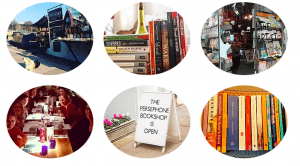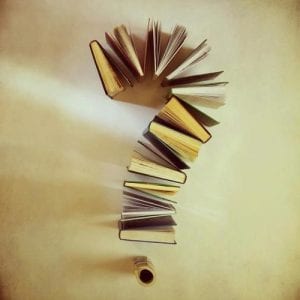Interview with Samantha Rayner
By uczcmsm, on 26 February 2018
Following on from our interview with Daniel last term, we’ve heard from Sam about how she fell into publishing, her favourite books and her advice for Publishing MA students!
Favourite book:
What kind of fiendish question is that?! There are old-time children’s favourites (Anne of Green Gables, Little House on the Prairie, anything by Alison Uttley, Susan Cooper, Joan Aiken…..); favourites for comfort reading (Georgette Heyer); favourites for historical fiction (Dorothy Dunnett), for fantasy/sci fi fiction (Robin Hobbs, Tolkien, Lois McMaster Bujold), for literary fiction (A. S. Byatt, Ishiguro, Sarah Perry)….and, of course, for my academic work, it has to be Le Morte d’Arthur, by Thomas Malory!
How did you get into publishing?
It’s a story of happenstance, perseverance, fate, and how sometimes being pushed to do something can result in amazing things! Books have been the one constant in all my jobs – except, like Daniel, for a miserable few weeks working for an insurance company, and doing lots of farm work while I was at school (I grew up on a fruit and hop farm). I started with a Saturday job in my local town library, Tonbridge, and then worked in a bookshop, Hammicks in Tunbridge Wells, during my gap year and then every vacation whilst I was at university in Bangor, doing a degree in English. I went on to do an MA in Literature (on the poems of Gerard Manley Hopkins), and then got married, did more bookshop work, and then a PGCE in Secondary English and Drama. A few years of teaching in Kent schools followed, before I had my son: and then my tutors from Bangor suggested that it would be a good time to do a PhD! So I did – in medieval poetry, and during the course of this, fate took our family back to Bangor, so I was able to start teaching English at the university part-time, whilst I finished my thesis. When that was done I was asked to take on a Research and Development Manager role to help set up a new School of Creative Studies and Media. This gave me interesting experiences not just of putting together new courses (including publishing ones!), hiring staff, and helping to facilitate research bids, but also useful things like having to kit out a new building, from scratch (I am still very proud that ten years on the red sofas I chose are going strong in the lobby area!) This was a two year contract, so when that ended my boss pushed me to apply for a part-time, senior lecturer post at Anglia Ruskin University in Cambridge, in Publishing. It seemed a crazy idea at the time, but I applied, setting out what I’d do if I had to build a new MA in Publishing, and got the job!
Moving to a new place was hard, but this job allowed me to spend time within a publishing company (Cambridge University Press mentored me for the first couple of months I was in post, so I got to see all the different depts there), and I loved seeing the course develop. After a year, I was also involved in setting up a new Research Institute about Digital Culture, so that also linked in my existing developmental facilitation experience and skills.
And then, in 2012, I was encouraged to apply for a job at UCL, and did, again not thinking I stood a chance of getting it – and the rest is history! I am living proof that at some point, all those random bits of work experience do come together (even the fruit and hop-picking have been useful training in perseverance, and attention to detail!).
How do you interact with your chosen field?
That’s a good question! Publishing is such a truly dynamic area, and is moving so fast, so you have to keep up with what’s happening. Twitter is a vital tool, as is The Bookseller, and all the different conferences and seminars that happen. The London Book Fair is a great annual hub of activity. On the academic side, I have two academic families – my publishing one, and my Arthurian/ medieval one, and I interact with them by attending conferences, meetings, and collaborating with people on research. You are always learning something new, and I love that!
Favourite piece of research you’ve been part of?
I really enjoyed the Academic Book of the Future research, which was a huge project, with lots of different strands and activities. I worked with some amazing people, and got the chance to make real impact within the academic book world. At the moment, I am really loving the research I am doing with two friends and Arthurian/ publishing colleagues (yes, there are more of us!) Dr Leah Tether and Dr Bex Lyons, on the Penguin Archive at Bristol University. We’re looking at how Penguin worked to make classic texts available to a more general readership, and finding some fascinating stuff…it’s detective work, and finding material that sheds new light on how we perceive these canonical works. Publishers do more than you might think!
What advice would you give a Publishing MA student?
Make the most of your investment. Use all the opportunities the course and UCL offer you – not just the classes, but beyond that. Be prepared to push outside of your comfort zone, to take creative risks, and to use the space the MA gives you to explore what your strengths are, and what kind of job you really want to pursue….
A fun fact about yourself:
Um….I’ll confess to being a complete Alan Rickman fan!
A book that we might be surprised you have read?
Well, when doing Admissions interviews, I always take note of any books people say they enjoy when they answer that first question! So, this past year, I have enjoyed reading Murakami’s Kafka on the Shore, and Sigrid Unset’s Kristin Lavransdatter as a result of student recommendations: so I do listen! (and thanks, guys!)
Thank you Sam for your wonderful answers. I was pleased to note I’m not the only one who struggles to choose a favourite book (or ten)!
 Close
Close














